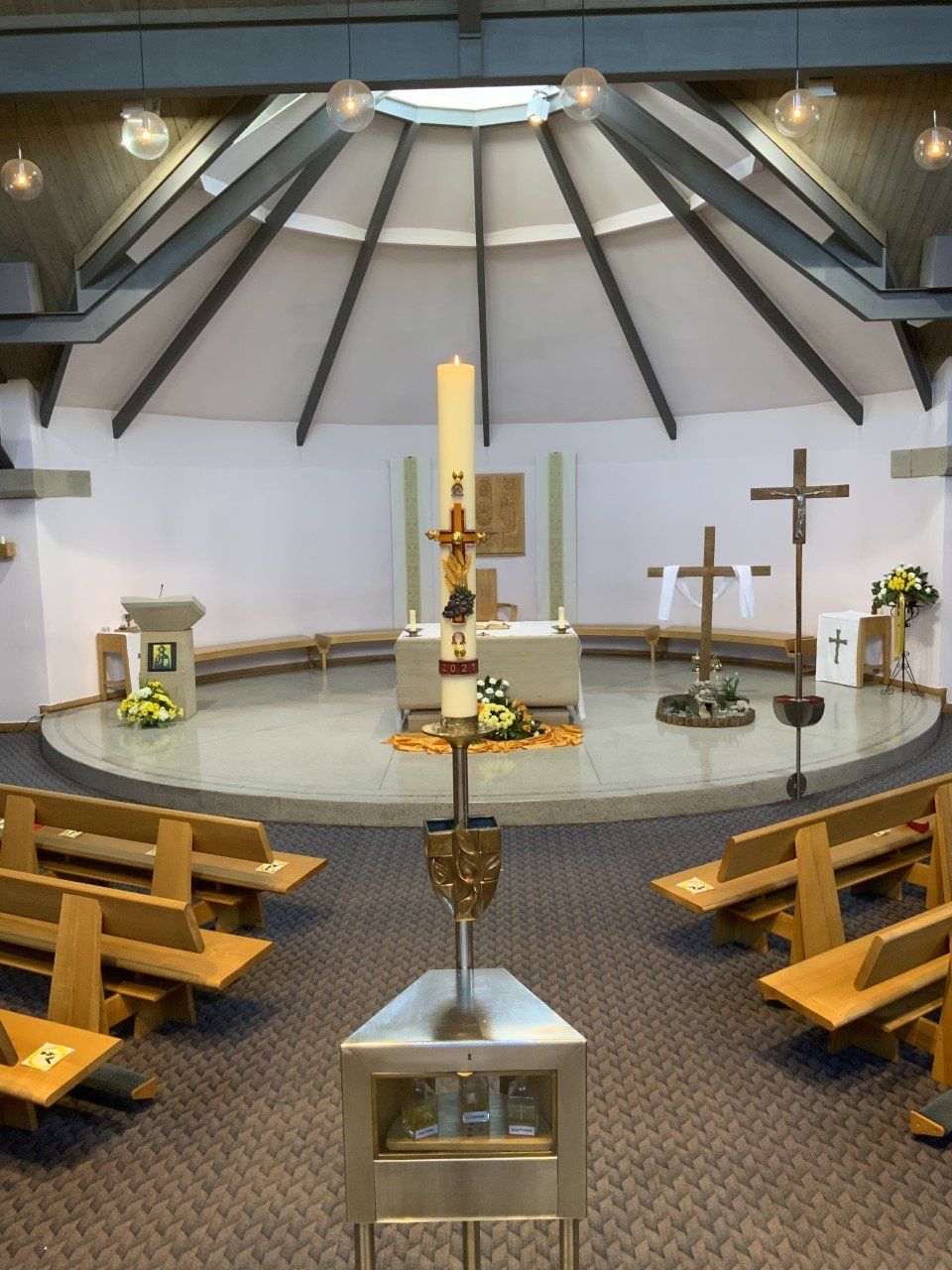
On Tuesday, 21 May at 7.30pm Richard Atkinson will give a talk on the history of Pietro Lorenzetti’s painting of Christ Between Saints Peter and Paul now hanging on the wall in church, which originates from the altar in Sienna. Everyone is welcome. The talk will be held in church after the evening Mass. Refreshments will be served afterwards in the Parish Centre. Although a free event, donations will be welcome.
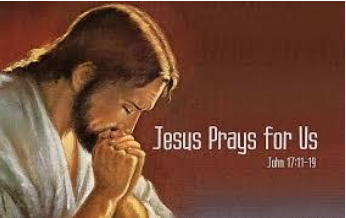
Today we read from the 17th chapter of John's Gospel, which comes at the conclusion of Jesus' farewell discourse at the Last Supper. This entire chapter is a prayer by Jesus, commending himself to the Father and expressing his care and concern for his disciples. Several important themes appear in this prayer. First, Jesus' prayer reaffirms the complete union between himself and the Father. Jesus has been presented as the one who pre-existed with the Father and as the one sent by the Father to do his work on earth. In today's reading, we hear Jesus include all his disciples in this union with the Father. We are reminded that Christ is the source of Christian unity. Through Christ, we are united with one another and with God Our Father. In this prayer, Jesus describes part of his mission in the language of protection. He has protected those who were given to him by the Father. John presents Jesus' mission on earth in the context of a cosmic struggle between good and evil, represented by light and darkness. In Jesus' presence, his disciples have been protected from Satan. Now that Jesus is returning to the Father, he prays that his disciples will continue to be protected from the evil one. We can't help but note here the echoes of the prayer that Jesus taught his disciples, the Lord's Prayer. We also see the distinction found between the world and the disciples. The disciples are in the world, but they do not belong to the world. Yet like Jesus, they are sent into the world for the world's salvation. As Jesus' teaching and ministry was a source of consternation for some, Jesus knows that the world may not accept his disciples with open arms. Again, we hear echoes of John's theme that salvation is worked out through the cosmic battle between light and darkness. The world, according to John, prefers the darkness. Yet the light will not be overcome by the darkness. Reading this prayer of Jesus during the Easter Season, through the lens of his Resurrection, we know that the light of Christ has overcome the darkness of sin and death in our world. In the opening line of this prayer, we hear Jesus pray that his disciples will be kept in the name that he was given by God. We know that salvation is given to us in the name of Jesus, and that his name—“God saves”—announces his mission on our behalf.

The Sacrament of the Anointing of the Sick is the Church's sacrament for those who are sick and aging and when we pray for God's grace to strengthen someone who is suffering from any form of illness. Everyone is welcome to attend. Refreshments will be served afterwards in the Parish Centre. If anyone requires transport, please contact the SVP on 07526 099 523 or leave a message at the parish office by close of Wednesday 15 May.

In John’s Gospel, we hear Jesus affirm that he is known by the Father and that his disciples will know the Father by knowing Jesus. In this passage, however, Jesus reminds his disciples that this knowledge is to be expressed in love. Those who know Jesus well—and Jesus says that his disciples do know him—will love one another. Knowledge leads to love, which leads to action. John reminds his community that Jesus taught that love is the sign of a true disciple and, thus, a true Christian. Even more, a true disciple shows a particular kind of love, sacrificial love. In the Greek, there are two words for love that are used in this passage. The first is agape. The second is philia. The first word is most often used to describe love for other persons and for God. It is understood as the highest and most perfect kind of love. The second word is used to describe the affection of friendship. In this context, John appears to use these words as synonyms. The root of the Greek word for friend comes from this second term for love, philia. By using this word, Jesus transforms the terms of his relationship with his disciples and redefines for them their relationship with God. In the Hebrew Scriptures, faith in God made one a servant of God. Here Jesus teaches that his relationship to his disciples is based on friendship, not servitude. John reminds his community that Jesus also taught that a disciple is one who had been chosen—one who had been chosen by Jesus. To be chosen by Jesus, however, is not to be set apart from the world. Instead, to be chosen by Jesus is to be sent to serve the world as he did. The disciples of Jesus were chosen and were sent into the world to bear fruit by serving others, by sacrificing for others, in love. This reading is part of Jesus’ Last Supper discourse. We read his instruction to the disciples in the light of his death and Resurrection. We know that Jesus himself gives us the greatest example of the kind of love and service that he teaches to his disciples. He has, in fact, laid down his life for his friends, for his disciples, and for us. Through his death and Resurrection, we have received the grace to love others as Jesus has commanded.
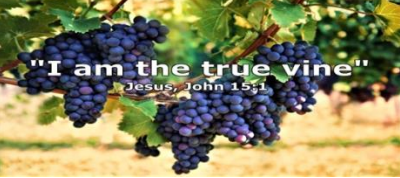
Today’s reading from the Gospel of John is part of Jesus’ discourse at the Last Supper. In these chapters of John’s Gospel, Jesus instructs his disciples about the importance of following his example of love and service, about the gift they will receive when Jesus sends them the Holy Spirit, and about their relationship with Jesus and with the world. The Last Supper discourse concludes with Jesus’ prayer for his disciples. Today’s Gospel reading is taken from middle of the Last Supper discourse. Jesus speaks about his relationship to his disciples. In his metaphor of the vine and the branches, Jesus is referencing the Hebrew Scriptures. In the Hebrew Scriptures, Israel is the vineyard, and Yahweh himself tends the vineyard. One of the primary themes of John’s Gospel is to show Jesus to be the fulfilment of God’s promises to Israel. In this passage, Jesus teaches his disciples that his relationship with them will not end after his death; he will remain with them always. This unity between Jesus and his disciples is the basis for their ability to continue to do the work that he began. Similarly, Jesus’ presence with us through the Gift of the Holy Spirit enables us to continue the work of love and reconciliation that he began. Jesus also teaches his disciples about the importance of the words he has taught to them. Just as Jesus will remain in the disciples, so too will his words. We come to know Jesus through the Scriptures, the living Word of God. Our commitment to be Christ’s disciples is sustained through God’s Word. This commitment is also strengthened by our life of prayer and nourished by the Eucharist. Through the Eucharist, Jesus dwells in us, remains with us, and transforms us so that we might bear fruit in his name. We observe many people who act in ways that show their commitment to serve their neighbour. Christians and non-Christians feed the hungry, care for the sick, shelter the homeless, and give alms to the poor. These actions become acts of Christian discipleship when they are motivated by our relationship with Jesus. Whatever the immediate results, Jesus promises us that these actions will bear fruit when we undertake them in his name.
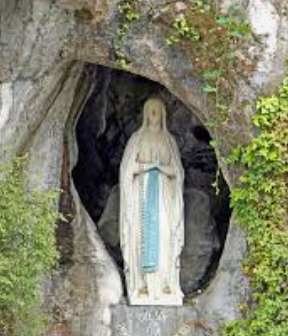
Friday 5th - Thursday 11th July From Leeds/Bradford Airport: The theme is ‘and that people should come in Procession’. Booking now open and places are filling up. Please book with Tangney Tours T: 01732 886666 or online: https://www.tangney-tours.com/tours-and-pilgrimages/diocese-leeds/ Further info is available at https://www.dioceseofleeds.org.uk/lourdes-pilgrimage/ If you are interested in volunteering, (especially appealing for doctors, particularly GPs and nurses) please contact: lourdes.enquiries@dioceseofleeds.org.uk Dates for your diary: Sunday 14th April Meet the pilgrims, Hinsley Hall, 2-4pm. Saturday 8th June Pre-departure Mass 11:30am Leeds Cathedral.
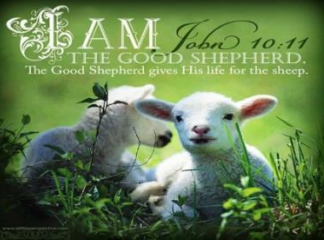
The fourth Sunday of Easter is also called Good Shepherd Sunday. Our Gospel is taken from the 10th chapter of the Gospel of John. In the portion of the chapter that we hear proclaimed today, Jesus describes his relationship with his followers as similar to the relationship between a good shepherd and his sheep. As a good shepherd will risk and lay down his life to protect his sheep, Jesus willingly sacrifices himself for the sake of his sheep. Jesus contrasts the actions of the good shepherd with the actions of the hired shepherd who abandons the sheep in the face of danger. In the verses following Jesus' teaching, we learn that the Pharisees and the other religious leaders understand that Jesus is referring to them when he describes the hired shepherds. The concern of a good shepherd for his sheep is part of the shepherd’s job. Jesus says, however, that the actions of the good shepherd are based upon the relationship that develops between the shepherd and the sheep. This is at the heart of the difference between the good shepherd and the hired shepherd. The good shepherd knows the sheep and therefore acts out of love. For the Good Shepherd, this is never simply part of a job; this love-inaction is integral to his identity. As with so much of John’s Gospel, one hears in this passage John’s particular focus on Christology. As the sheep are known by the Good Shepherd, the Father knows Jesus and Jesus knows the Father. There is an essential unity between the Father and the Son. The freedom with which Jesus acts when he lays down his life is rooted in the unity that he shares with his Father. In this context, Jesus also refers to others with whom he shares a relationship. By this reference, John probably understands the eventual inclusion of the Gentiles in the Christian community. Our modern ears hear this as a reference to Christian unity. The work of ecumenism is to restore unity among all Christians so that we form one flock under one shepherd, as God desires.
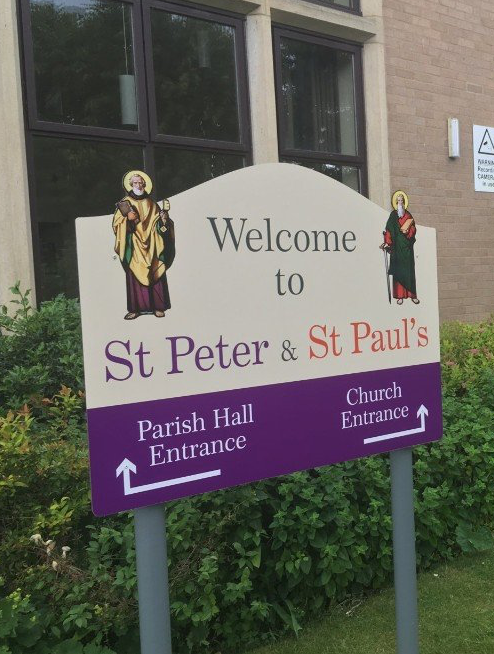
This year our retreat at The Briery will take place over the weekend of 18-20 October and will again be shared with a parish from Lancashire. This was fully subscribed last year and those of us who went had a really great time. If you think you may be interested then please contact the parish office.
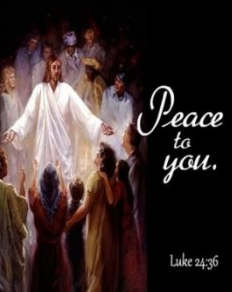
Today’s Gospel reading follows immediately after the report of Jesus' appearance to his disciples on the road to Emmaus. This is the event being recounted by the disciples in the opening verse of today’s Gospel. Consistently in the reports of Jesus’ post-Resurrection appearances, Jesus greets his disciples with the words, “Peace be with you.” This is a most appropriate greeting. The disciples have witnessed the death of someone they loved, and they now fear for their own lives as well. Peace is what they need more than anything else. Jesus often connects this greeting of peace with another gift—forgiveness. In today’s Gospel, this connection is made in the final verses. Even as they hear Jesus’ greeting of peace, the disciples are startled and terrified. They are uncertain about what to make of the figure before them and, quite understandably, they mistake Jesus for a ghost. Yet the figure before them is not a ghost; Jesus invites them to experience his resurrected body with their senses, to look and to touch. The figure before them is flesh and bone, still bearing the marks of crucifixion. Although the disciples cannot forget his suffering and death, peace begins to take root in their hearts, as their fears turn to joy and amazement. As further proof of his identity and of his resurrected body, Jesus eats with his disciples. The disciples have known Jesus best through the meals that he has shared with them. By eating with his disciples after his Resurrection, Jesus recalls all these meals, and most importantly, he recalls the Last Supper. Luke’s report of the Last Supper and the meals that Jesus shared after his Resurrection unveil for us the significance of the Eucharist. Having shared a meal with his disciples, Jesus now uncovers for them the significance of what was written about him in the Scriptures. So, too, our celebration of the Mass is an encounter with Jesus, through the Word and the Sacrament of the Eucharist. As Jesus commissions his disciples to be witnesses to what Scriptures foretold, our celebration of the Eucharist commissions us. Like the disciples, we are sent to announce the good news of Jesus’ forgiveness of sins.

